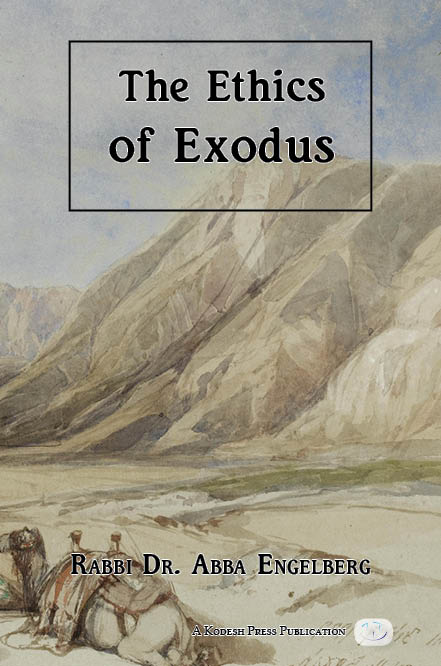You must be logged in to post a review.
Shop
The Ethics of Exodus
$23.95
Keeping to a brief, readable format, Engelberg manages to summarize an array of learned opinions – from more than 80 scholars, each described briefly in the back of the book – to provide perspective and food for thought regarding thorny ethical questions. – Abigail Klein Leichman, Jerusalem Post
Using a plethora of sources, this work often attempts to connect the ideas not only to timeless ethical lessons as its title would suggest, but also to contemporary dilemmas. – Yonatan Horovitz, Jewish Bible Quarterly
Engelberg doesn’t just pose a question and then answer it with the position of one mefaresh [commentator]. Rather, he presents multiple perspectives from both historical and modern authorities, resulting in a well-rounded examination of each subject. – Rabbi Jack Abramowitz, OU.org
The questions are those which a thoughtful adult may wonder about while reading the weekly portion, yet are generally not addressed by those classical commentaries who focus on a localized, verse by verse explanation of the text. – Simcha Rosenberg, Jewish Bible Quarterly
The book of Exodus raises some ethical questions central to the Jewish faith. Too often, we learn these Biblical stories as children and never revisit them—or their ethical implications—once we have reached adulthood. In many cases, we realize that the explanations we learned in childhood call for further elucidation. Rabbi Dr. Abba Engelberg presents many traditional answers, explained in depth, as well as some original interpretations, to difficult ethical questions raised by the narrative of the book of Exodus, including:
- Can we understand Egyptian oppression as a forerunner to anti-Semitism?
- What does it mean that Pharaoh’s heart was hardened? Is there an ethical problem in removing his free will?
- Did Jethro join the Jewish people out of righteousness or expediency? Do his motivations matter?
- What is the thematic relationship between the two halves of the Ten Commandments?
- Why do the interpersonal laws of Mishpatim precede the God-oriented laws of Terumah and Tetzaveh?
- Was Aaron’s participation justified in the episode of the golden calf?
About Rabbi Dr. Abba Engelberg
Abba Engelberg graduated from Telshe Yeshiva (valedictorian) and Yeshiva University (cum laude), where he received rabbinical ordination. He holds a Ph.D. from New York University in Operations Research, and served as professor at Jerusalem College of Technology for 40 years, where he founded and headed the women’s division. He served as a Reserve Chaplain in the United States Air Force, where he achieved the rank of Colonel. He is the father of four sons and lives in Jerusalem with his wife.

Reviews
There are no reviews yet.